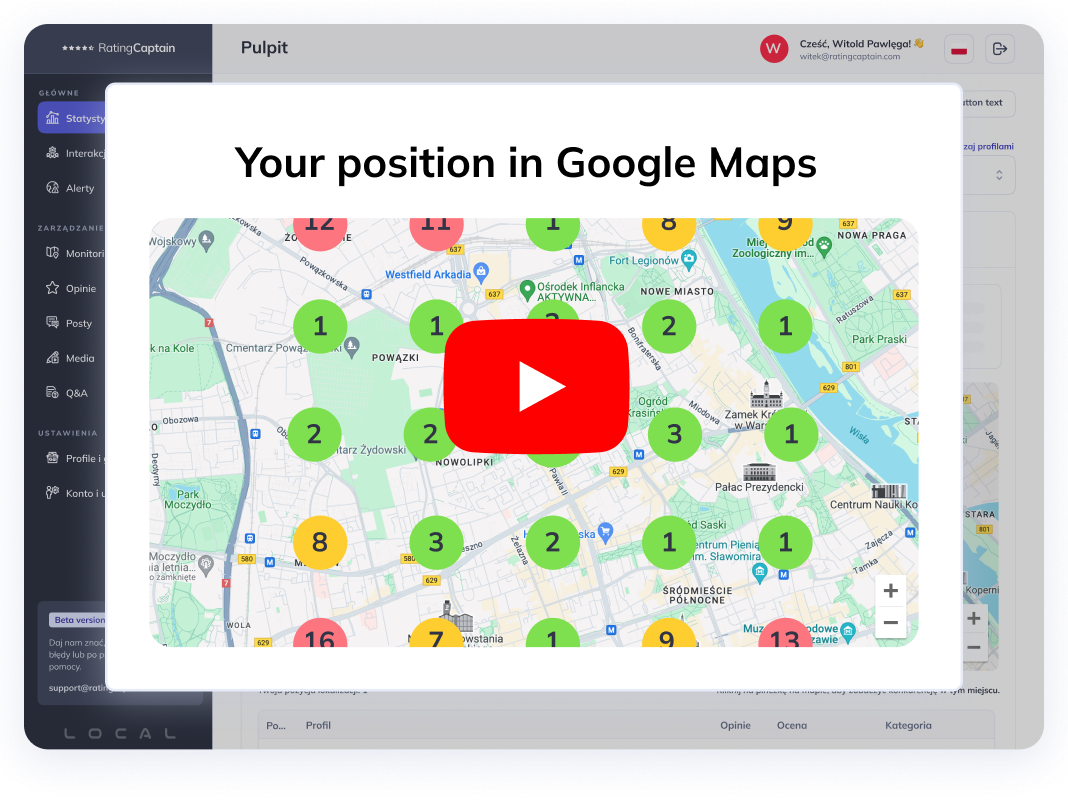

Basic marketing tools. The best marketing tools 2023.

Table of contents
Market analysis tools
Market analysis is the process of collecting, selecting, and interpreting information about the market, consumers, competition, and market environment.
The goal of market analysis is to obtain knowledge that will lead to a better understanding of consumer needs and preferences, as well as better preparation and adaptation of products, services, platforms, and marketing strategies to the market; potential customers.
Market analysis can cover various areas, such as market segmentation analysis - leads, competition analysis, consumer needs and preferences analytics, market trend analysis, etc.

What are the free market analysis tools?
There are many free tools that can help with market analysis. Some of them are:
- Google Trends: a tool that allows tracking the popularity of keywords in the Google search engine;
- Google Analytics: a tool for analyzing website traffic and user behavior;
- Google Alerts: a tool for monitoring searches on the Internet and publications about selected keywords;
- ReviewsAudit: a free tool for analyzing customer reviews about a company on various review sites such as Google Reviews, Facebook Reviews, or Trustpilot;
- Hootsuite Insights: a tool for monitoring social media activity and analyzing trends and user behavior;
- SurveyMonkey: a tool for creating and conducting online surveys;
- LinkedIn Audience Insights: a tool for analyzing demographic and user behavior on LinkedIn;
- Google Search Console: a tool that allows webmasters to monitor and manage the visibility of a website in the Google search engine, resolve indexing and click issues, and optimize mobile subpages.
Basic tools for marketing communication

What are the free tools for creating marketing communication?
- Canva: a tool for designing graphics and advertising materials;
- Unsplash: a free library of photos for commercial use in social media or Google Ads;
- Rating Captain: a tool for displaying real customer reviews on a website to create User-Generated Content (UGC) that affects website positioning and brand trust;
- Adobe Spark: a tool for animation, videos, and presentations;
- Piktochart: an infographic tool.
Basic marketing tools. SEO and social media internet marketing

What are the free tools for social media marketing (LinkedIn, Instagram, Facebook)?
- Hootsuite: a tool for managing social media accounts and creating marketing content;
- Buffer: a tool for planning and sharing content;
- Later: a tool for planning and sharing content, especially on Instagram.
Basic internet marketing tools for email marketing
Email marketing is a marketing strategy that involves sending email messages to customers or potential customers containing advertising or informational content.
The goal of email marketing is to increase brand awareness, encourage purchase, and build relationships with customers through personalization and customization of messages to the needs and expectations of recipients.
Email marketing can include various types of messages, such as newsletters, special offers, new product announcements, etc.
It is important for email marketing to be effective, which requires ensuring the quality and attractiveness of content as well as selecting the appropriate recipients and sending times.

What are the free tools and platforms for email marketing campaigns?
There are many free tools and software that can help with email marketing. Here are a few examples:
- Mailchimp / Benchmark Email / Sendinblue: tools for creating and sending newsletters and conducting email marketing campaigns;
- GetResponse: a tool for creating, sending, and generating reports on newsletters and conducting email marketing campaigns, as well as displaying pop-ups on the website.
Best marketing tools on the market. Lead for content marketing mix 4P/7P

What are the most popular tools for content marketing?
- Canva: a tool for designing graphics and advertising materials
- Contadu: a tool for marketers to write SEO-optimized texts for search results and popular phrases in Google Search using indicators;
- Grammarly: a tool for checking the grammar and spelling of texts.
Tools for analyzing marketing activities. Advertising budget and customers
Analysis of marketing campaign results is the process of marketing analytics to assess the effectiveness and efficiency of marketing activities and determine their impact on achieving business goals.
The goal of analyzing campaign results is to verify whether the campaign has achieved its goals, as well as determine its strengths and weaknesses and what needs to be improved in future plans. It tells how to optimize future campaigns and targeting.
Analysis of campaign results includes various key performance indicators (KPIs) such as number of ad impressions, number of clicks, number of orders, revenue from campaigns, etc.
It is important for the analysis of campaign results to be systematic and regular, as well as to use appropriate measurement tools and methods.

What are the free tools for analyzing campaign results?
There are many free tools that can help with analyzing campaign results. Here are a few examples:
- Google Analytics: a tool offered by Google that allows analyzing website traffic and user behavior. It allows, among other things, checking the number of website visits, traffic sources, time spent on the website, number of conversions;
- Facebook Ads Manager: a tool offered by Facebook that allows analyzing the results of ads on Facebook and Instagram. It allows, among other things, checking the number of ad impressions, number of clicks, number of orders, advertising costs;
- Twitter Analytics: a tool offered by Twitter that allows analyzing the results of ads on Twitter. It allows, among other things, checking the number of ad impressions, number of clicks, number of orders, advertising costs.
Please rate this article
Try our new
Local SEO tool
Manage and track visibility of your
Google Business Profiles

